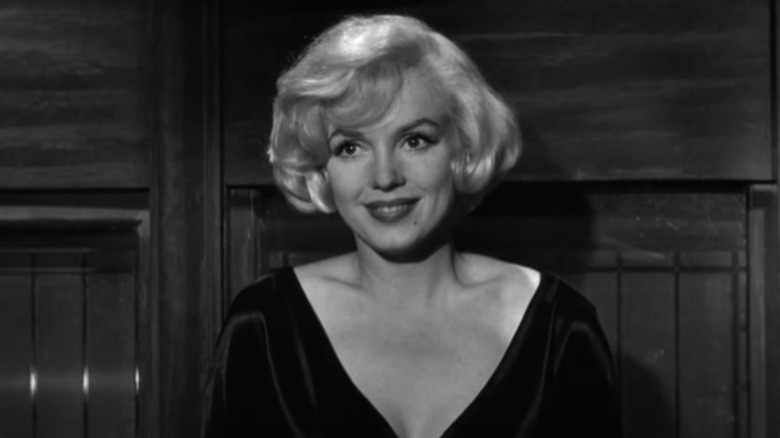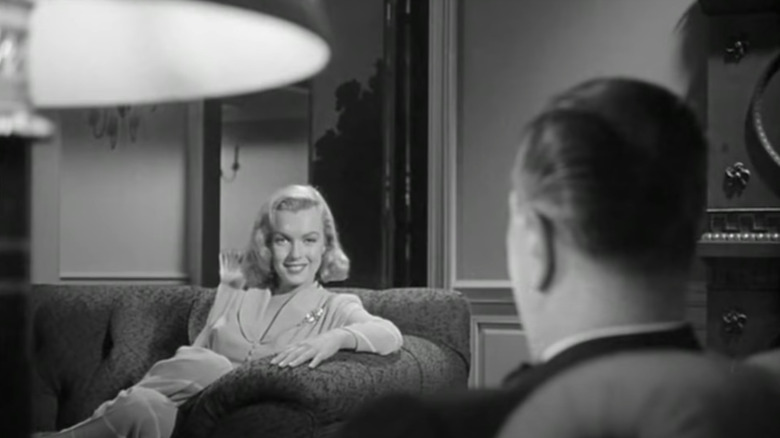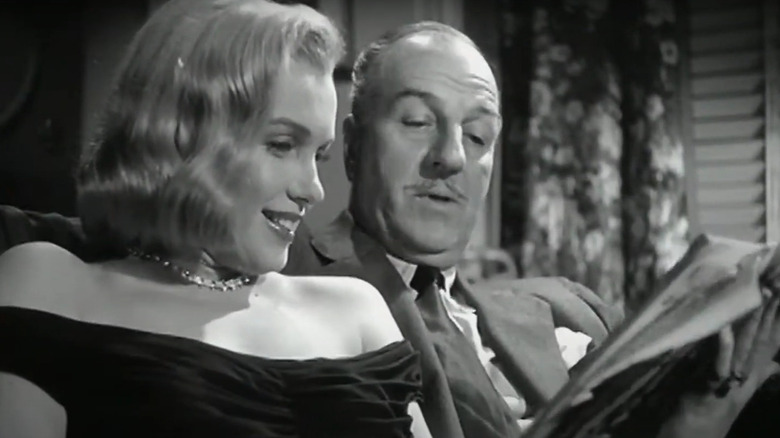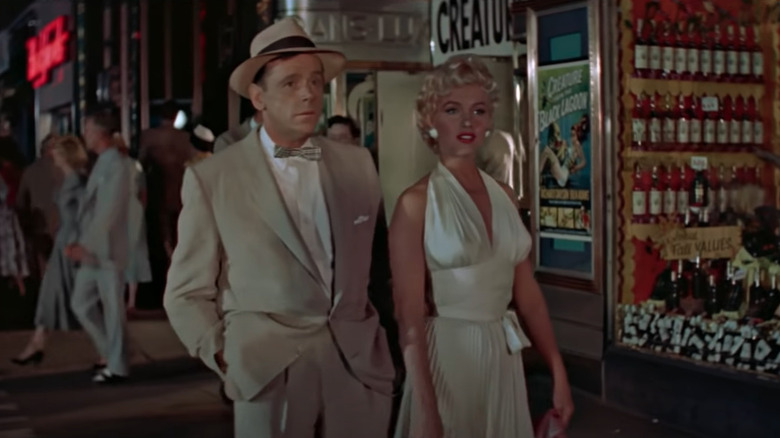Marilyn Monroe Credited Four People For The Success Of Her Film Career
Few stars have cemented themselves as deeply in movie history as Marilyn Monroe. The actress wasn't just a movie star: she was hailed as an all-American sex symbol, and her legacy is still going strong to this day, 60 years after her passing. Few stars, male or female, can claim the same degree of popularity.
Yet for all her lasting success, Monroe had a rocky start to her career. Early on, the actress managed to nab a few roles here and there, but was generally ignored by film studios — Metro-Goldwyn-Mayer even complained that she lacked "the sort of looks that made a movie star." It's hardly a surprise that Monroe had to bounce back and forth between acting and modeling until her film career made it big. But while her patience eventually paid off, the star was aware that her career wouldn't have become such a hit without others' support (and a couple of leaps of faith).
'A number of people have contributed greatly'
By 1955, Monroe was a massive sensation. "The Seven Year Itch," one of her most successful films, had just come out. Amidst its release, 20th Century-Fox Dynamo would report that Monroe's "glamorous personality" had "brought her more publicity than any foreign queen has ever received in the American press." However, the actress didn't insist that she had done it alone. In a television interview that same year, Monroe reflected on some of the people who had a massive impact on her career:
"[A] number of people have contributed greatly. I think when John Huston wanted me for the part in 'Asphalt Jungle,' and I think when Billy Wilder wanted me for the part in 'Seven Year Itch,' I think that was very important. And also working with my coach Natasha Lytess, she helped me very much from the very beginning. And I also got a great deal from attending classes with Michael Chekhov."
Even though Monroe wasn't yet a huge star when she met with most of the people who were named, she nevertheless seems to have dazzled them. Most notably, Natasha Lytess allegedly developed an infatuation with her talent, though the exact nature of their relationship is still somewhat of a mystery. Similarly, although Monroe only knew Michael Chehkov, her Method acting teacher, for a few short years (from 1951 to his death in 1955), a biography on Chehkov revealed that he helped support her throughout her rise to fame.
A director with vision
It's no secret that Monroe had a troubled personal life and battled drug addiction, which occasionally made it difficult for studios to work around the actress. In fact, when she auditioned for a relatively small role in "The Asphalt Jungle," the then-unknown actress was so overcome with nervousness that she requested to read her lines while lying on the floor. However, director John Huston wasn't thrown off by Monroe's panic. As he stated in an interview, he was adamant that the role was perfect for the actress — and even thought it might help propel her career in a new direction:
"I thought of it as a role that Marilyn could play. She was at a stage in her life when, really, nobody was about to give her a dramatic role because she was essentially a comedian and a light fluff. And I knew better, and it was sort of a gift to her at a certain point."
Even though Huston had a hard time getting the studio to sign off on casting Monroe, he was persistent — and her role would eventually lead to larger parts. In fact, some of her greatest performances would be in dramatic roles, so it's very well possible that Huston's gamble led to many of Monroe's later successes.
Monroe and Wilder had a difficult relationship
Evidently, Billy Wilder was impressed by Monroe's performance in "The Seven Year Itch." Several years later, the actress would go on to star in "Some Like it Hot," another of Wilder's films (though production was famously difficult and the director would later turn on the star). That being said, their relationship was far from peachy. As "Some Like it Hot" star Jack Lemmon recalled:
"I've never seen [Wilder] stopped cold except by Marilyn. ... [After about 28 takes,] Billy had given her every single conceivable piece of direction. ... When she stopped again [following a take,] Foreman said, 'Well, okay Marilyn, possibly if you—' and she interrupted and said, 'Billy, don't talk to me now. I'll forget the way I want to play it.'"
Unfortunately, the falling out wasn't all that unusual for Monroe, who faced increasingly difficult mental health and addiction battles which in turn led to strained studio relations. Nevertheless, as the director of two of her biggest films, Wilder certainly played a large role in establishing the actress as a glamorous film star.



